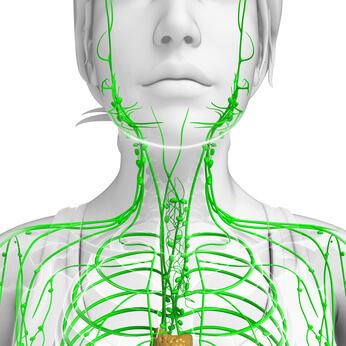The human body is an intricate network of systems, each contributing uniquely to our overall health.
Among these is the lymphatic system, an integral part of our immune system that significantly intersects with dentistry, although often overlooked. Today, we delve deeper into this connection to uncover the lymphatic system’s role in oral health.

Understanding the Lymphatic System
The lymphatic system is a sophisticated collection of vessels, organs, and nodes that act as the body’s cleaning crew, clearing away toxins, waste, and other unwanted materials. It’s akin to a subway system, circulating lymph fluid throughout the body.
Key components of this system include:
- Lymph: A clear fluid that transports white blood cells, particularly lymphocytes, crucial for combating infections.
- Lymph vessels: A network of small tubes that transport lymph across the body.
- Lymph nodes: Bean-shaped structures that produce and store infection-fighting cells. They filter lymph fluid, trapping and destroying harmful substances.
- Lymph organs: Organs, including the thymus, spleen, and bone marrow, produce, store, or process cells filtering lymph fluid and blood.

Key Functions of the Lymphatic System
The lymphatic system primarily performs two roles: maintaining fluid balance and immunity.
- Fluid Balance: It retrieves excess fluid and proteins from tissues that can’t be returned through the blood vessels. It collects fluids and waste products from the spaces between cells, then filters and cleanses them.
- Immunity: It is pivotal in defending the body against diseases. Lymphocytes, a type of white blood cell in the lymph, counter foreign substances and infectious microorganisms.

Lymphatic System and Dentistry
Dental health directly impacts the lymphatic system. Poor dental hygiene can lead to mouth infections that the lymphatic system circulates throughout the body. Notably, the lymph nodes in the neck are among the first to respond to oral cavity infections.
A healthy lymphatic system can help manage oral health conditions by efficiently combating oral pathogens. Dentists often examine patients’ lymph nodes for swelling or tenderness, indicating an infection or disease the body is combating. An inflamed lymph node in the neck could signify a tooth infection, with the bacteria traveling into the lymphatic system, causing nearby lymph nodes to work overtime to fight off the infection, leading to swelling.
Lymphatic Tissue and Teeth: An Evolving Understanding
The periodontal tissues supporting the teeth, including the gums, contain lymphatic vessels. These structures play an essential role in maintaining oral health by assisting in removing bacterial toxins, dead cells, and other waste products from the periodontal tissues, aiding in preventing periodontal disease and other oral health issues.
The dental pulp, the innermost layer of a tooth, has traditionally been thought to lack lymphatic vessels. However, recent studies propose a lymphatic-like system may exist within the dental pulp. Extensive examination of dental pulp under electron microscopy revealed structures resembling lymphatic vessels. This system could contribute to fluid balance and tissue homeostasis within the dental pulp, functioning similarly to the general lymphatic system.

Final Thoughts
We can not overstate the significance of the lymphatic system in maintaining oral health and overall well-being. Proper oral hygiene and regular dental check-ups are about maintaining a healthy smile and lymphatic system, contributing to our overall health.
At St. Lawrence Dentistry, we believe in an integrated approach to oral health, and understanding the lymphatic system’s role in maintaining oral and overall health is a crucial part of this.
- St. Lawrence Dentistry Looks Forward To St. Patrick’s Day! - March 12, 2025
- Understanding Dental X-Rays and Radiation: What You Should Know - January 13, 2025
- Happy New Year from St. Lawrence Dentistry! - December 30, 2024










